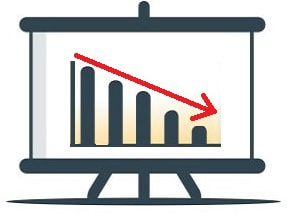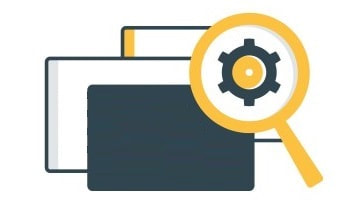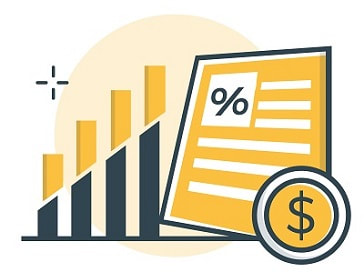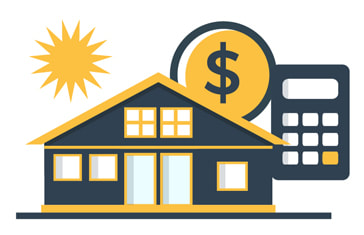20 Easy Ways to Save LOTS on Household Bills
Save money every month by cancelling subscriptions, reducing car costs, switching insurance, re-negotiating rent, applying for better credit cards and switching to cheaper internet, phone and power companies.
Updated 8 November 2023
The cost of living is a long struggle for many. This guide is published (and updated) to help Kiwis make the most of their income and eliminate unnecessary spending. When times are good, there’s less of a need to be careful, but even the most affluent household can make use of the suggestions below.
We believe that many households who action 3 to 7 suggestions from the list below could easily save $3,000 to $8,000 per year. There's never a bad time to cut back on what you don't need, want or use.
Do you have a money-saving tip that you’d like us to share? Email our research team to help improve this guide.
Must-Read Related Guides:
The cost of living is a long struggle for many. This guide is published (and updated) to help Kiwis make the most of their income and eliminate unnecessary spending. When times are good, there’s less of a need to be careful, but even the most affluent household can make use of the suggestions below.
We believe that many households who action 3 to 7 suggestions from the list below could easily save $3,000 to $8,000 per year. There's never a bad time to cut back on what you don't need, want or use.
Do you have a money-saving tip that you’d like us to share? Email our research team to help improve this guide.
Must-Read Related Guides:
MoneyHub Founder Christopher Walsh shares his views about decreasing essential costs:
|
"After housing costs (rent or mortgage repayments and rates), the typical New Zealander spends significant amounts of money on five common (and arguably essential) costs:
MoneyHub has published guides (linked above) to help reduce these costs; our research continues to find new ways to save, and we update our guides regularly. Whatever your unavoidable monthly costs may be, keeping personal debt under control frees up more money for keeping on top of costs. For this reason, a common theme of MoneyHub guides is to cut up credit cards if you ever struggle to make full repayments every month. This is because the cost of servicing the debt is significantly high, and often the debt has been created by buying non-essentials. However you decide to save money, this guide has an extensive list of easy-to-action ways to make it happen". |
MoneyHub Founder
Christopher Walsh |
Our Must-Know Tips to Save Money on Everyday Expenses:
Cancel SubscriptionsYou can easily save $500, $1,000 or even more a year by giving up on subscriptions you don’t need or use. Up until 2020, subscription services exploded, and everything from toilet paper to t-shirts could be regularly delivered to your home. Companies love ‘recurring revenue’ as they know customers seldom make an effort to cancel. However, unless you see the value and actively use the service, we suggest you cancel the subscription.
The best way to find out what you subscribe to is to audit your most recent credit card bill and list of direct debits, and pick out the items to chop out. Once identified, simply log in to the service and click ‘cancel’ or call them up if that's easier. These services and products may include:
Estimated savings: Anything from $200 to $2,000 a year, depending on what you currently subscribe to. |
Re-negotiate your Life, Income Protection (and related cover) Insurance NeedsUnder-insuring is not the solution, but many insurance policies overcharge when better deals can be found by shopping around for what you do. Our article in The Spinoff covers the basics of what you can look at eliminating.
For life insurance and income insurance, you may be paying too much. You’ll have more room to get a discount (and/or get a better policy) if you visit a trusted insurance broker rather than talk to your existing insurer directly. We’re not advocating cancelling insurance; instead, challenging what you pay and getting a better deal is the only way to avoid a ‘loyalty tax’ by not shopping around. Top tip – during the process, make ALL the required disclosures so you can’t be accused of having a pre-existing condition. If you’re undergoing medical treatment, don’t switch insurance as claiming will be near-impossible. Estimated savings: Up to $1,000 a year if you have existing life, income protection, trauma and related cover and no underlying health conditions. |
Get Cheaper Car and Home Insurance PoliciesMoneyHub research proves both car insurance and home insurance have a big range when it comes to the cost of policies despite the benefits being the same or very similar. Trusted challenger brands like Cove and Trade Me (car insurance) and Initio (home) mean you can get better details by switching to a new provider.
Next Steps: Our price comparison guides to car insurance and home insurance have more details. Estimated savings: Up to $500 a year on car insurance if you have a good driving history, and up to $400 on home insurance existing life, income protection, trauma and related cover and no underlying health conditions. |
Consider Cancelling Contents Insurance AltogetherContent insurance is costly if you don’t own much of value. The test is this - if you would struggle no longer having a laptop, TV, musical instrument, linen, cutlery, even clothing, and wouldn’t have the money to replace your possessions, then contents insurance is probably a good idea. However, if instead you’re paying for a policy and don’t own many items of significant value, you could consider cancelling the policy altogether. Best of all, if you’ve prepaid for 12 months, you’ll get the remaining months you don’t need refunded.
Know This: If you are concerned about being liable for accidentally damaging the home you rent and want insurance for that, things have changed considerably. Our guide to renters insurance has more details. Estimated savings: If you cancel contents insurance you don’t need, you can save up to $750 a year. |
Cancel expensive credit cards (or switch to low-cost or free cards)If you pay $150 per year for a credit card and then 20%+ interest on balances, there are cheaper options available. A low-interest and low-fee credit card is a good starting point to save every month on outstanding balances - our guide lists all the cards currently on offer.
Estimated savings: $1,000 a year for anyone with a gold/platinum card carrying a balance of $3,000 to $5,000 month-to-month. |
Balance Transfer Credit Cards Cut Debt CostA $5,000 credit card balance at a 20% p.a. interest rate is incurring $1,000+ in interest costs which is completely unnecessary. Savvy savers find a balance transfer deal, switch the debt to a 0% (or very low-interest) deal and cut the existing card up. Over the length of the low-interest period, you make repayments to clear the debt and avoid using the card for new purchases. It’s the cheapest and most-effective way to save on interest costs and move towards becoming debt-free.
Estimated savings: $1,000 a year based on a $5,000 month-to-month balance. |
Stop Paying International FX Fees on Your Debit Card and Credit CardOnly two cards, the Wise Debit Card and Flight Centre Mastercard, eliminate the foreign currency fees all the banks love charging. If you shop online and pay with foreign currencies or travel overseas, your bank will charge you a fee for ‘translating’ the currency. The good news is there’s no need to pay it – the Wise debit card is free, gives you the best exchange rate and doesn’t charge any such fees. If you want a credit card, Flight Centre’s offering gives a number of benefits as well as 0% FX fees. Our guide to overseas credit card bank fees explains more.
Estimated savings: 2% to 3% on whatever you spend. If you’d normally spend around $5,000 a year on purchases made in non-NZD currencies, you’ll save at least $100 to $150. Better yet, with the Wise Debit Card and Flight Centre Mastercard, you’ll get the best currency exchange rate and save even more. |
Cut Overdraft Costs with a Better Bank AccountOverdraft interest rates and fees are huge, and being in overdraft for an average of $2,000 a year can cost up to $500 in interest and fees and charges. Our guide to bank overdrafts shows that charges differ massively; some charge 10%, others as high as 23%. The good news is that joining a new bank offering a low-interest overdraft is easy and painless and will certainly help you save money right away.
Our guide to cutting overdraft costs compares the best (and worst) bank deals available right now. Estimated savings: $200 to $300 per year. This is based on your overdraft interest rate falling from around 20% to 10% and an average overdrawn balance of $2,000 to $3,000. If your overdraft is often more, your savings will be higher. |
Switch to the Best Value MortgageThe Official Cash Rate has never been lower; if your mortgage term is about to expire (or not too far away), start looking for a better deal. The lower interest rate means your mortgage will be significantly cheaper and help with your finances. The cheaper the deal, the better things will be. Our home loans guide lists the best mortgage rates available right now.
Estimated savings: A 2% lower interest rate (i.e. 4.99% to 2.99%) will save $10,000 per year on a $500,000 mortgage balance. |
Delete apps like Afterpay and LayBuyIn this new economy, cash is king, and we never know what’s around the corner. Paying for a hair appointment at $50 a week for six weeks, or $75 a week for four weeks for an impulse shopping trip, feels a bit 'yesterday'. These apps rely on continuous consumer spending and add another complication to keeping your money under control. If you really want it, saving up for it and paying for it in cash is fast becoming the new normal.
Estimated savings: Anything from $100 to up to $5,000 a year (if you’re a regular user and stop purchasing on non-essentials). |
Switch Power SuppliersOur detailed power company comparison reveals cheaper electricity deals in major cities over New Zealand. With many electricity retailers offering joining discounts and competitive tariffs, shopping around and switching is likely to save you money month after month.
Estimated savings: Up to $1,000 a year if you’re a moderate to heavy electricity use (based on our research and price comparison), |
Switch to a Cheaper SIM-only phone planOn-account phone plans can get expensive, especially if you’re paying for data and minutes you don’t use. With challenger brands like Skinny, Warehouse Mobile and Two Degrees competing against established networks, there are bargains to be had. If you’re paying $60+ a month for a rolling contract plan, chances are Skinny can do it for around $40. Our SIM-Only Mobile Plans comparison guide has all the details.
Estimated savings: $150 to $300, depending on your data usage habits. |
Switch to a Cheaper Broadband or Fibre dealBroadband and fibre companies compete hard for business, and many offer fantastic sign-up deals if you commit to a 12-month plan. Our broadband comparison ranks the best deals of the month based on your specific needs.
Estimated savings: Up to $500 a year. |
Swap Paid Activities for Free Things to DoIf you have children, there are lots of free things you and your family can do together. Our guide to 100+ free activities in Auckland has the most comprehensive list, but you can also find relevant options in our school holiday guide for Wellington and Christchurch. Outside activities are, arguably, more healthy and memorable – New Zealand’s nature and scenery are free, so it’s a win-win for everyone.
Estimated savings: Around $1,000 a year (if you’d otherwise spend $20+ a week). |
Get Free Money from the New Zealand GovernmentStruggling with your finances is stressful, but support is available from the NZ Government. Plenty of programs exist to help low and middle-income families make essential expenses more affordable - our guide reveals what help is available right now. New Zealand has long been a welfare state, and despite negative media reports about Work and Income, those willing to help themselves can be supported with short-term help. If you’re worried about how you’ll make ends meet this month or in the short term, our guide has you covered.
Estimated entitlements: This varies, but options include utility bill assistance, childcare subsidies and a range of rebates and grants add up. |
Save Money on Driving CostsDespite the cost of oil being low, prices at the pump are still around $2 a litre, which makes using a car expensive. Our extensive list of 20 Tips to Cut Your Driving Costs covers everything from avoiding premium unleaded for standard cars, saving on fuel your petrol bills by changing your driving, bargaining down the price of tyres and repairs and other helpful easy-to-action tips.
Estimated savings: Up to $1,000 a year. |
Sell an Under-Used Car and Avoid all the Ongoing CostsIf you’re struggling with the costs of driving, selling your car altogether is worth considering. Or, if your family has two cars, would you be OK with one? When you sell a car, you’ll not only get a sum of money, but you’ll save a lot of ongoing costs. There will be no more WOF, repairs costs, insurance and petrol station bills. If you’re a young family and one parent is commuting by public transport anyway, it’s worth looking into. Retired couples may also benefit from single car ownership.
Trade Me Motors is a great starting point to find out the value of your car, and see if it makes financial sense to sell up. Estimated savings: $1,000 a year in road costs, $1,000+ a year in finance costs (if applicable) and $500+ a year in insurance costs. Next Steps: Our Car Valuations guide has more details about what you can get in cash if you decide to sell a car. |
Re-Negotiate Your Rent or Consider Moving HomesWhen New Zealand closed its borders in March 2020, ex AirBnB homes became rental properties overnight in areas all over the country. Because of the increased selection available, it's perfectly reasonable to negotiate on rent given the market conditions. This is somewhat unfamiliar territory for many long-time New Zealand renters, but it's worth having the conversation with the property manager or landlord. If you've been a reliable tenant and want to stay on, you're in an even stronger position.
Estimated savings: It varies, but even $30/week adds up to $1,500 a year. |
Take Lunch to WorkThis simple tip can add up to a lot of savings over a year. If the average lunch costs around $10, making a sandwich or packing something even more exciting can easily save you over $2,000 a year.
MoneyHub founder Christopher says: "When I was about to leave my investment bank career, I knew every lunch I took to work was financing my future. My workmates would easily spend $40 to $50 a day on lunch, but in the last few months, I sat it out and chowed down on a tasty homemade sandwich. I estimate I probably saved about $3,000 and felt better as a result, and had more time to work on my business plans during the lunch break." Estimated Savings: $1,000 to $2,500 a year (depending on what you spend making your lunch). |
Save Up for Things You Want (and Build a Savings Fund)When 2020 hit, many people lost their income overnight and had no money in the bank to cushion them without government aid. To help prevent financial stress and sleepless nights, make the decision to save up for purchases and pay for them in cash. This may be an unfamiliar approach, but it's guaranteed to reduce expenses and debt in the long-term. If you're not prepared to save for it, you probably don't want it as much as you think.
Top Tip: To help reduce the risk of spending unnecessarily, try leaving your EFTPOS or credit cards at home when you go out. Instead, carry cash - you won't be able to make impulse buys if you know the money has to last. Estimated Savings: At least $1,000 a year, but likely to be considerably more. Impulse purchasing is a major cost, so eliminating it will boost your savings and help you create a rainy day fund. Next Steps: Our Emergency Funds guide has more details about how to establish a safety net. |
Useful Tools:
Must-Read Related Guides:
Money Tips:
- Budgeting Apps
- Free Financial Literacy Classes
- Free Financial Products
- 50/30/20 Budget Calculator
- Budget Planner
Must-Read Related Guides:
- 20 Things to Stop Buying to Have More Money
- 20 Indicators You're Doing Well Financially
- 20 Must-Know Money Lessons (Learned From Experience)
- 20 Money Habits that Keep You Poor
Money Tips:


























